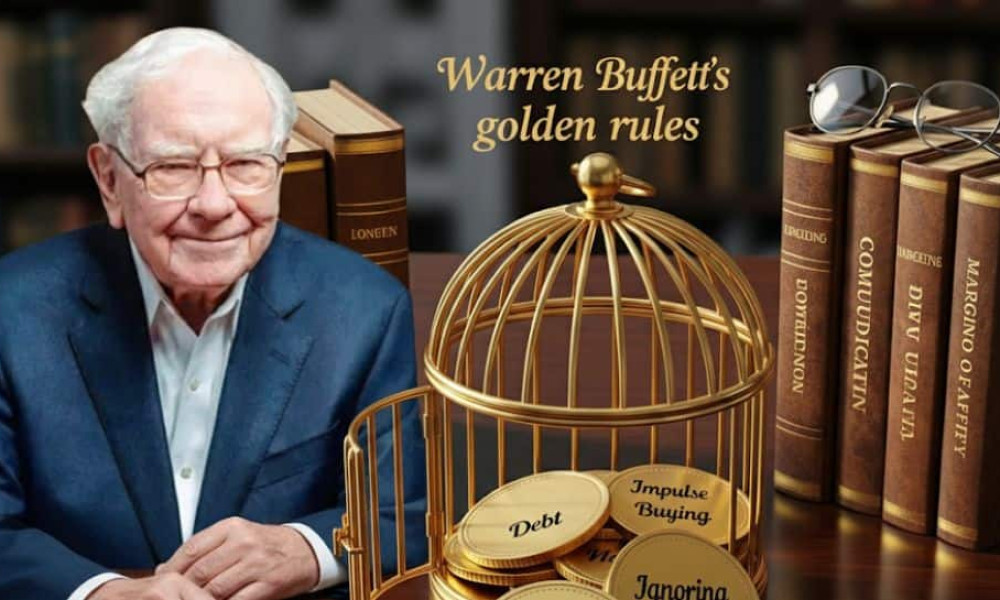Warren Buffett, revered by many as the greatest investor of all time, continually proves that building significant wealth isn’t about complex maneuvers, but rather about sound decisions and, crucially, patience. He champions a straightforward investing philosophy, famously stating that “richness doesn’t come from complex tricks, it comes from avoiding stupid mistakes.” As the guiding force behind the multi billion dollar conglomerate Berkshire Hathaway, Buffett’s timeless wisdom continues to illuminate the path for both novice and seasoned investors globally.
Buffett’s insights resonate deeply, inspiring millions across the world. He frequently highlights that the endeavor of saving and investing money intelligently far surpasses the challenge of merely earning it. In his profound perspective, a primary pitfall for many in the investing realm lies in succumbing to what he terms “money traps” — entirely avoidable errors that can severely impede one’s journey toward substantial financial success.
Let’s explore Warren Buffett’s five golden rules, meticulously designed to help you circumvent common **money traps** and cultivate enduring prosperity.
Buffett places immense emphasis on life’s inherent uncertainties. Economic crises can emerge without warning, at any given moment. Without a robust emergency fund, unforeseen circumstances like job loss, unexpected illness, or sudden large expenses can compel individuals into accumulating debt, thus ensnaring them in a financial **money trap**. The global COVID-19 pandemic served as a stark, undeniable testament to the indispensable importance of maintaining an emergency fund. Buffett’s celebrated dictum remains:
“Do not save what is left after spending, instead spend what is left after saving.”
A prevalent mistake people often make as their earnings increase is to unnecessarily inflate their living expenses. This might manifest as acquiring a luxury vehicle, indulging in lavish vacations, or splurging on designer items. Such habits can create a misleading perception of affluence without genuinely fostering it. Remarkably, Buffett, despite his billionaire status, still resides in the very same house he purchased in 1958 and drives a modest 2014 Cadillac. His sagacious advice:
“If you buy things you don’t need, you will soon sell things you need.” Buffett firmly believes that the genuine route to wealth is not paved with consumption, but rather through diligent saving and astute investing.
Buffett vociferously warns against accumulating more debt than one can comfortably manage. Debt, he explains, mirrors a snowball – it begins innocuously small but possesses the alarming capacity to rapidly spiral into an uncontrollable force. In places like India, for instance, credit card interest rates can soar to as high as 40 percent annually, which, if not meticulously managed, can plunge individuals into dire financial predicaments. Buffett’s iconic declaration on this topic is clear:
“If you are smart, you don’t need leverage. If you are dumb, it will ruin you.”
Debt’s insidious influence extends beyond merely draining your savings; it profoundly erodes your peace of mind, ushering in undue stress and anxiety. It’s a quintessential **money trap** that can be avoided.
Investing hastily or without thorough due diligence is a recipe for catastrophe. This includes blindly following stock market fads without grasping the fundamental businesses behind them, or avariciously chasing swift, fleeting profits. Buffett steadfastly counsels patience, urging investors to resist such temptations. He famously states, “Never invest in a business you don’t understand.” Buffett maintains that judicious, long term investments in enterprises you genuinely comprehend will invariably outperform the transient allure of quick gains. This principle holds particular relevance in today’s era of omnipresent social media tips and unverified rumors, where countless investors fall prey to **money traps** by seeking shortcuts instead of investing the time in proper research.
Buffett, affectionately known as the “Sage of Omaha,” unequivocally stresses that there is absolutely no shortcut to building substantial wealth. Whether one is eyeing stocks, real estate, or any other investment sector, patience emerges as the paramount virtue. He frequently observes, “The stock market takes money from those who keep trading frequently and gives it to patient investors.” In the contemporary world, schemes such as certain cryptocurrencies, Ponzi schemes, and various fraudulent offers enticingly promise rapid, effortless profits. Buffett memorably branded crypto as “rat poison squared,” firmly advocating for steering clear of such excessively high risk ventures that inherently lack tangible, intrinsic value. These are clear examples of dangerous **money traps** that can destroy financial futures. His wisdom is a beacon for anyone looking to avoid these common pitfalls.

